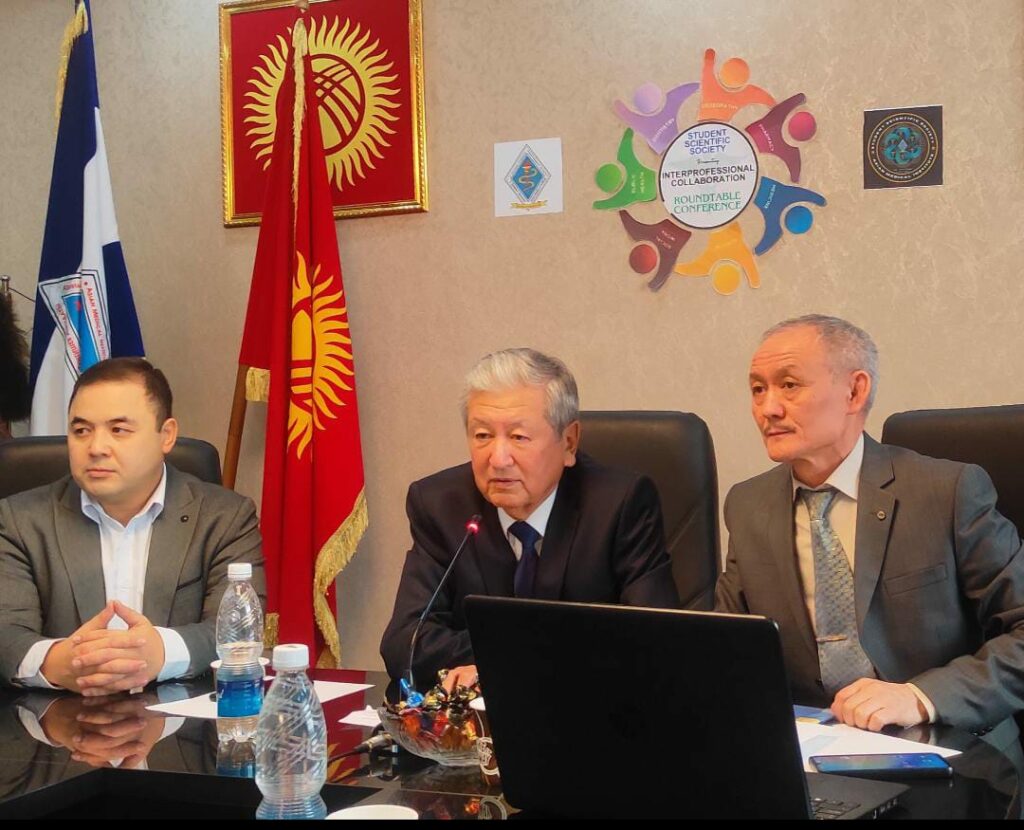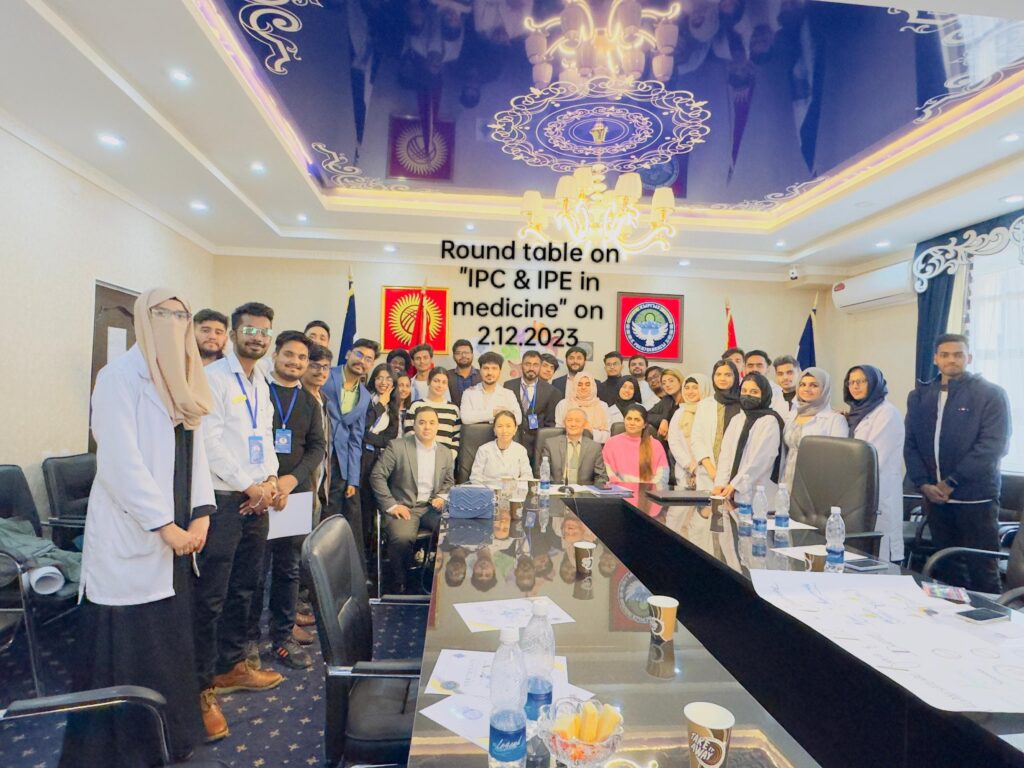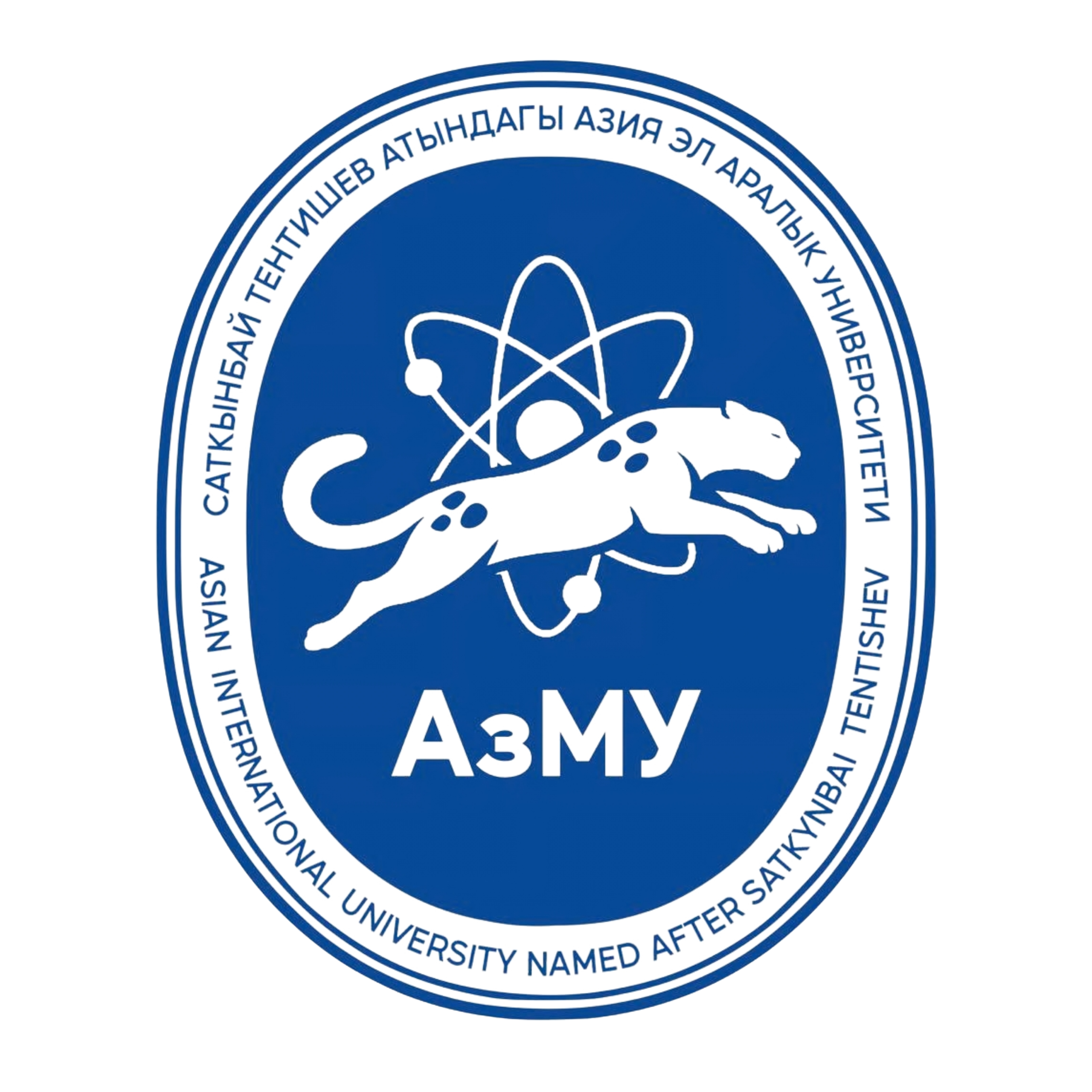On December 02, 2023. In a dedicated pursuit of advancing medical education, the Asian Medical Institute named after S. Tentishev recently conducted an insightful intra-university round table on interprofessional education (IPE) and interprofessional cooperation (IPC) in medicine. This event, enriched by the active participation of students and the engagement of the Student Scientific Society of AzMI, yielded significant insights and recommendations.
Key Conclusions from the Round Table:
- Value of IPE in Student Training: Emphasizing that IPE is integral to medical education, the round table underscored its role in preparing students to work collaboratively in teams, ensuring safe and patient-centered care. This strategic approach aids in fostering essential skills and relationships for effective collaboration in the healthcare setting.
- Importance of IPC in Delivering High-Quality Care: The round table recognized the pivotal role of IPC in enhancing patient outcomes, reducing errors, and improving overall efficiency in healthcare delivery.
- Integration of IPE and IPC into Education: Participants highlighted the necessity of embedding IPE and IPC seamlessly into various facets of medical education, including classroom learning, clinical practice, and the broader work environment.
- Need for Additional Research: Acknowledging the evolving nature of IPE and IPC, the round table participants emphasized the imperative for further research to identify best practices and assess the effectiveness of these strategies in medical education.
Recommendations for Future Actions:
- Development and Implementation of IPE Programs: Participants advocated for the creation and implementation of IPE programs aligned with the specific goals and objectives of medical schools.
- Participation in Interprofessional Collaboration Experiences: Students were encouraged to actively engage in interprofessional collaboration experiences, fostering a practical understanding of teamwork and cooperation.
- Evaluation of Program Effectiveness: Schools of medicine were advised to develop robust strategies for evaluating the effectiveness of their IPE and IPC programs to ensure continuous improvement.
- Collaboration with Other Agencies: Recognizing the holistic nature of healthcare, participants recommended active collaboration between medical schools and other healthcare agencies to develop and implement comprehensive IPE and IPC programs.
The S. Tentishev Asian Medical Institute reaffirms its commitment to championing IPE and IPC in medical education, firmly believing that these approaches are indispensable in preparing the next generation of healthcare professionals to deliver safe and patient-centered care.


